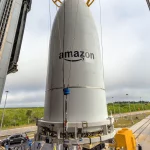Full Fibre Broadband May Deliver £120bn Boost to 100 UK Cities and Towns
A new study conducted by economic consultancy Regeneris, which was commissioned by Cityfibre, has predicted that the total economic impact of deploying “full fibre” (FTTP/H) ultrafast broadband ISP networks, across 100 distinct UK city and towns, could reach £120bn over a 15 year period.
The study examined 10 areas of the United Kingdom’s economy that were deemed “likely to benefit from full fibre roll-outs” and it also sought to quantify the impact of each of these areas in 100 distinct UK town and city economies. The results are split by businesses, households, environmental impact and so forth. The research does not consider the outcome of a nationwide rollout but this would obviously be even bigger.
The headline figure of £120bn also seems to be at least partly based on the FTTH Council’s (2014) early overarching estimate of the impact of full fibre in the US, which suggested that providing it to just half of all premises could result in a 1.1% rise in annual GDP.
Advertisement
Key Findings
Businesses (particularly SMEs):
* £2.2bn in productivity stimulus
* £2.3bn in innovation benefits
* £2.3bn in growth resulting from new business start-ups
* £1.9bn in flexible working benefitsHouseholds:
* Households could benefit collectively to the sum of £7bn through increased property value
* Technological Developments
* £1.1bn from future healthcare applications
* £5bn from smart city infrastructure, services and smart energy
* £10bn from the Internet of Things/Industry 4.0
* Unlocks £28bn in 5G benefits.Direct Economic impact from network construction
* Drive £2.1bn GVA [Gross Value Added]
* Create close to 7000 temporary jobs, predominantly in the construction and civil engineering industries.Environmental Impact
* Saving 2.3m tonnes of CO2
* Worth £160m
The actual report is 42 pages long (quite short for such bold claims) and largely serves to summarise the predicted benefits, albeit without fleshing out many of its predictions. On top of that it conservatively assumes that take-up of full fibre amongst businesses will rise to an overall figure of 35% in those areas where it is available, which is fair given that a few mature FTTP/H networks in the UK already have average take-up of around 25%.
Greg Mesch, CEO of CityFibre, said:
“The UK economy is crying out for a shot in the arm and this report clearly demonstrates that a national full fibre roll-out would do just that. This is a discussion about far more than just broadband, it is about the digital infrastructure set to power our economy for decades to come.
CityFibre’s roll-out across our 42 towns and cities is under-way, and we are on track to deliver our goal of full fibre in 100 towns and cities. Given the size of the prize for the UK, all players, from industry, government, and Ofcom, need to focus on setting the conditions needed to deliver the maximum possible coverage in the shortest possible time. Only then will we unlock and unleash the full economic potential of full fibre, and that of the towns and cities in which it is built.”
Trying to quantify the economic improvement of widely deploying a new broadband technology, such as multi-Gigabit capable Fibre-to-the-Premises (FTTP/H), is always going to be fraught with difficulty. A big part of that stems from the challenge of demonstrating how “full fibre” could practically deliver such a significant economic boost versus existing “superfast broadband” (30Mbps+) networks that already cover 95%+ of the UK, which isn’t really reflected by this study.
Naturally faster speeds deliver greater benefits as other technologies evolve around them to take advantage, although today you can still do pretty much everything you’d need via a “superfast” connection. In the future that will change but right now going ultrafast is good for large families, improving connection reliability, bragging rights and saving time on your downloads (how much of an economic boost all that delivers is difficult to gauge).
The research itself similarly admits that it is “difficult to predict the exact scale of these effects and project the associated benefits in the future.” In order to account for that they have applied a “conservative assumption” that technological change and Metcalfe’s law will lead to a 2.5% uplift on all productivity and innovation impacts in the short term (after 5 years), a 5% uplift in the medium term (after 10 years) and a 7.5% uplift in the long term (after 15 years). As usual, take such estimates with a pinch of salt.
Advertisement
On the other hand, decision making around “full fibre” also has to consider that it takes a very long time to deploy and in many ways building it today is about preparing our nation for future demands. Not to mention the benefits of being able to move away from the flaky generation of copper (ADSL) and hybrid fibre (FTTC / VDSL2) services, which struggle to deliver their advertised speeds over distance and can suffer all sorts of reliability issues.
Otherwise today’s report will no doubt serve to further encourage investment toward full fibre providers. Furthermore it’s well time to coincide with the Government’s on-going review of future telecoms, which among other things has to consider what difficult changes (investment, market and regulation) might be required in order to boost the coverage of FTTP/H and 5G Mobile infrastructure across the United Kingdom.
Mark is a professional technology writer, IT consultant and computer engineer from Dorset (England), he also founded ISPreview in 1999 and enjoys analysing the latest telecoms and broadband developments. Find me on X (Twitter), Mastodon, Facebook, BlueSky, Threads.net and Linkedin.
« ISP Schools Broadband Seek Beta Testers for 330Mbps G.fast Service

















































Comments are closed